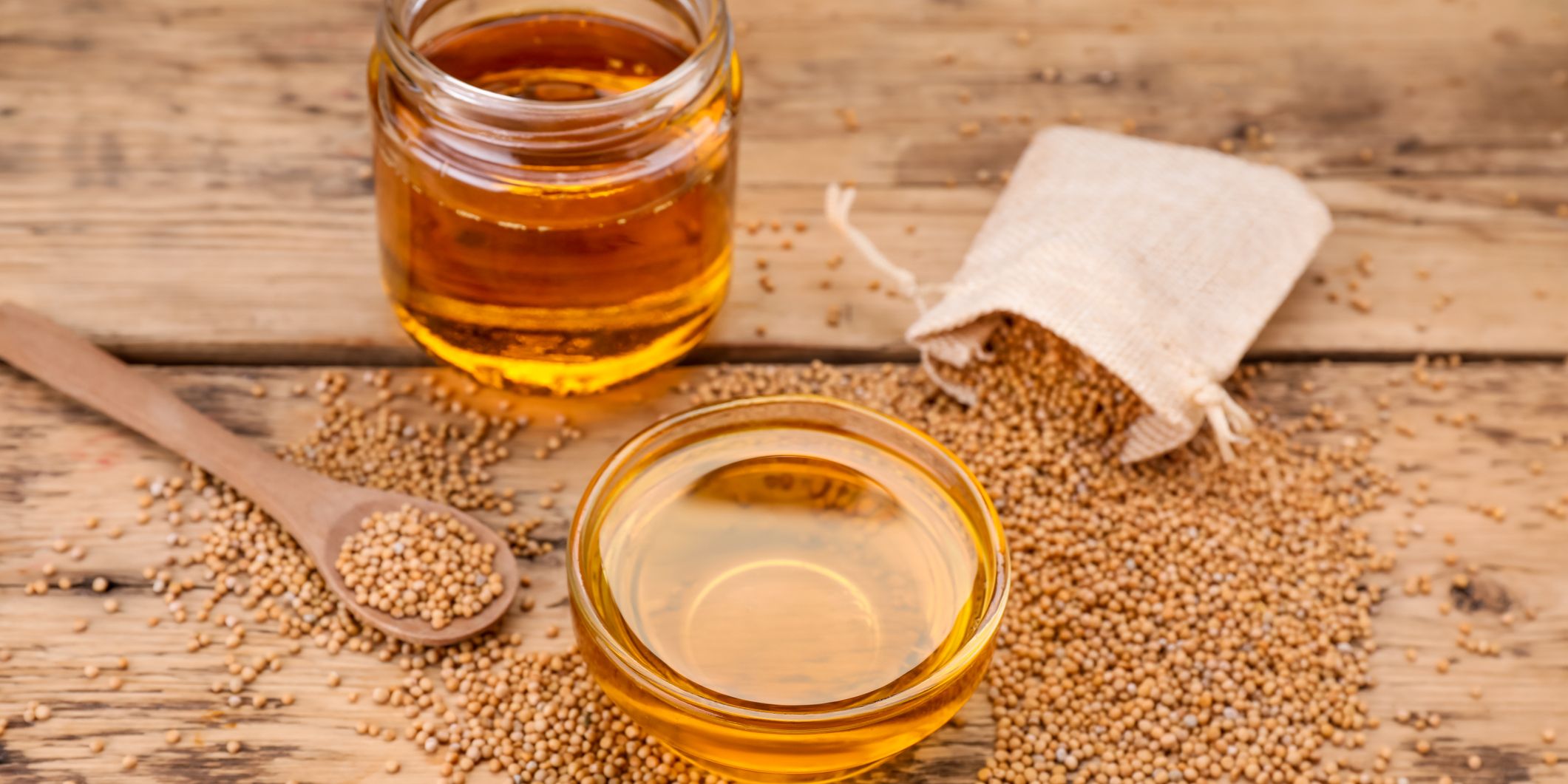All about seed oils and why they are so bad for you.
Eric,

No, that is not a clickbait headline. The truth is, seed oils are in practically everything processed from TV dinners to mayonnaise. Some of these seed oils are from GMO produced plants (Canola oil being the best known with soybean oil being a close second). All seed oils have a few things in common that make them not the healthy choice that Big food wants you to believe. They require excessive refinement to even make them edible[1[. SOme of those processes in refinement often make use of even more toxic chemistry along with a catalyst and heat to make the seed oils edible[2].
Now, how did the use of seed oils come into widespread use? Well, a lot of it has to do with profit motive. Some of it also has to deal in war. That second point seems like a non sequiter, until you realize that armies essentially march on their stomachs. It is a valid trueism that has existed as long as human history. Now, some of the problems involving war were always in the arena of food production. Items like animal fats (beef tallow, pork based lards, etc.) required a lot of base agricultural production. However, research into deriving oils from plants began very late in the 19th century and it wasn't until a multinational corporation called Proctor and Gamble actually developed one of the first products that we now see in wide use. It's called Crisco vegetable shortening and was introduced in the early part of world war 1 as a "clean kitchen product" among some of the other cooking products of the time (such as corn oil, cotton seed oil, peanut oil and others). Those first oils were the easiest at the time to produce. Another product that came along about midway into World War 2 was margarin. That was developed out of the original process that brought us Crisco called hydrogenation. Essentially, through the use of a catalist, hydrogen gas and vegetable oil and heat, one can create a solid spreadable substance that can be flavored and colored to look like butter, and cost far less to produce. Essentially, this development alleviated some of the shortages in our food supply here in the US (and Europe) during the first half of the 1940's. As it turned out, these products came into wide use and Big Food saw a large increase in market share as well as profits. Unfortunately, such products didn't see a lot of regulation nor were they fully tested over long term studies. However, the introduction of such oils into our food supply also appears to have coincided with the beginnings of the trend in increased incidence of heart disease, obesity and diabetes. In the 100 years or so since their introduction, those three major health issues went from very uncommon to being in the top 5 listed adverse illnesses in the 21st century and are responsible for almost as many deaths and health related issues as cancer and alcoholism. Yet, big food continues to claim (often through the appeal to authority of the medical establishment) that these oils are healthy [3][5]. Yet, one can't dismiss the correlation of use of these oils and increase health problems as a result[6]. There is simply far too much data accrued over the last 100 years that makes any argument to the contrary rather moot. Oh, and let us not forget the politics behind this debate as well [4].
Now, the major problem with seed oils is the fatty acid often found in them (omega-6 linoleic acid), which can be toxic in large amounts, which isn't all that hard to do[7]. One of the most prevalent cooking oils on the market these days is Canola Oil (aka Rapeseed oil) and was very toxic until the rapeseed plant was genetically modified in the late 1970's to make it less so). Btw, the name of Canola is actually short for "Canadian oil, low acid. Also, prior to 1980, rapeseed oil was primarily used as an engine lubricant. It is amazing how Canada managed to convince all of us that this oil could be used in cooking!
Now, if you really want to see how bad this is, go into your local grocery store and start checking ingredient labeles on all of the following items: potato chips, corn chips, pretzels, Breads, Breakfast cereals, Breakfast bars and pastries, frozen TV dinners, soups, Bread spreads, Salad dressings and much more. Nearly all of those read like a chemistry lab and all of them contain hydrogenated oils. Now, consider that all of these products make up about 60% of all the available food items in many grocery stores and even more in "convenience markets" and you can see just how bad this gets.
Now, if you want to make your own bread, use butter, coconut oil and the other usual ingredients for homemade bread. For salad dressings, you can use real olive oil (order it online from a reputable dealer specializing in cold pressed olive oil) instead of canola, corn or any of the other seed oils. Also, you can make sandwich spreads from eggs, olive oil, salt, paprika (or whatever other spice you want). SUre, all of this takes more effort, but in the end you will be healthier for it.
So, given all the data (much of which can be found with an online search), one can deduce that eating all of these seed oil laden products won't do your health any good. In fact, all of those seed oils will cause plenty of issues, which can cause increased health care costs, etc. Better to make at home knowing what you are putting on the table.
Bibliolgraphy
1. "The Rise of seed oils and why you should avoid them": https://fondbonebroth.com/blogs/journal/the-rise-of-seed-oils-why-you-should-avoid-them?srsltid=AfmBOoqULuUNyBcO2nsbLFRsmC-kQWg6eqERrGmXu08hem0BREXO94Z9
2. The Dangers of seed oils,The greatest bait and switch of our global food supply: https://megconnolly.com/2022/10/11/the-dangers-of-seed-oils-the-greatest-bait-switch-our-global-food-supply/
3. Seed Oils: Facts & Myths - Massachusetts General Hospital: https://www.massgeneral.org/news/article/seed-oils-facts-myths
4. Seed oils, Health, Food and Politics: https://fooddigital.com/food/seed-oils-health-food-production-and-politics
5. The Unpalatable Truth: Seed Oils' Hidden Impact on Health : https://www.tftc.io/seed-oils-health/
6. Are Seed Oils Bad for You? - Ideal Nutrition: https://www.idealnutrition.com.au/are-seed-oils-bad-for-you/
7. The 2024 levels guide to seed oils and metabolic health: https://www.levels.com/blog/the-ultimate-guide-to-seed-oils-and-metabolic-health




